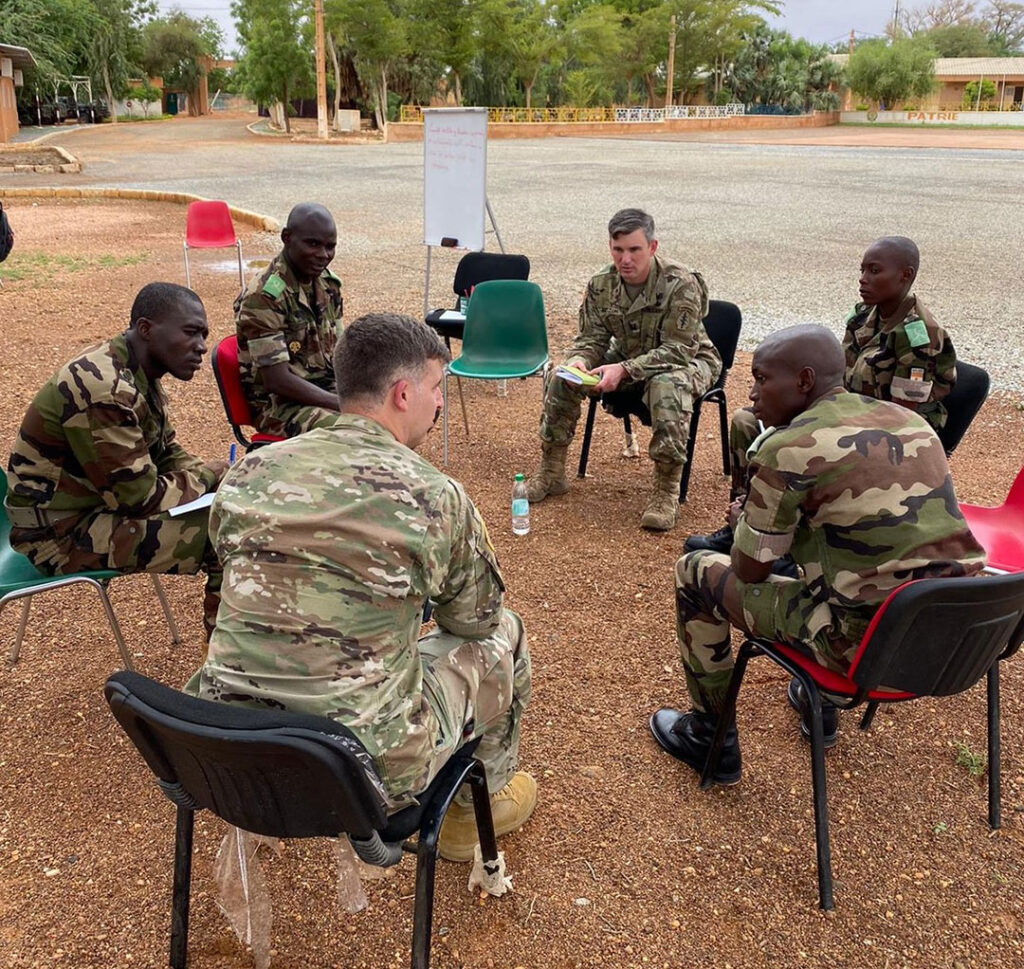ADF STAFF
Members of the Nigerien Armed Forces recently participated in discussion groups with U.S. Soldiers designed to promote mutual understanding on security issues and improve language skills.
The course took place at the École de Formation des Officiers des Forces Armées Nigériennes (EFOFAN), a two-year officer-training school in Niamey. The latest group of students graduated on August 5.
In addition to sessions on civil-military cooperation, the class agenda included information about the spread of COVID-19 and the need for officers to ensure that troops under their command take precautions to avoid the potentially fatal respiratory disease.
The EFOFAN courses are part of a multipronged drive to address the spread of COVID-19 in Niger, an effort that involved U.S. and international organizations such as Médecins Sans Frontières.
Niger has reported fewer than 1,200 COVID-19 infections and fewer than 70 deaths as of August 3 — a fact that prompted a discussion among students as to why Niger has escaped the kind of widespread effects other nations in Africa and the world have experienced. Although they recognized the importance of taking precautions even when case numbers are low, students were much more concerned about the spread of malaria, according to instructors.
The discussions were conducted in English — an important aspect of the program because, along with military training, it offered the students a chance to practice speaking the language, said Nigerien Armed Forces 1st Lt. Mahamadou Garba Abdoul Aziz, an English instructor.
“It’s the place where we share knowledge and opinions about a given topic,” Aziz told ADF. “It’s also an opportunity to hone our English level because language is a matter of use. As we say, ‘Use it or lose it.’”
The English language training is vital to the ability of U.S. and Nigerien forces to work together in the field, said Capt. Melton, part of the training team.
“We learn French in the U.S.,” Melton said. “By the Nigeriens learning English at their school, we can work to ensure there’s consistent communication in the future. We’re looking at being able to communicate for the long run.”
Another key component of the EFOFAN discussions was building better civil-military relationships as a way to thwart extremists, such as Boko Haram, who plague the Sahel. Students discussed how poverty and a lack of economic opportunities can inspire people to join extremist groups. They also discussed the fact that extremists often hide among civilians in villages and how building healthy, cooperative relationships with civilians give troops a better chance of locating extremists and capturing them, according to trainers.
An earlier EFOFAN group graduated in February after eight weeks of lessons in basic combat, field medicine and responding to hostile forces.
Aziz expects the training to help Nigerien Soldiers in the field.
“EFOFAN-trained officers will be key leaders on the battlefield,” Aziz said. “At the school, they learn theoretical skills. Once on the field, they put this into practice. As we always tell them, ‘Train hard, fight easy.’”

